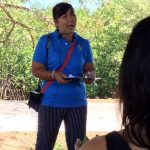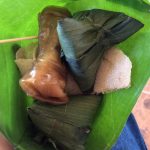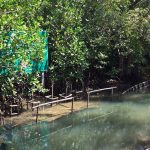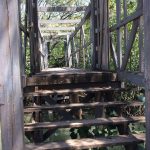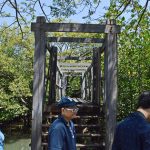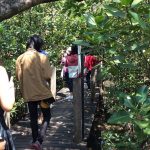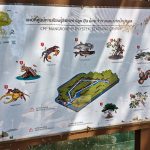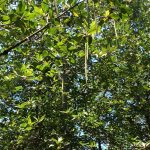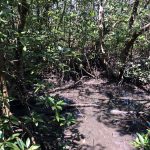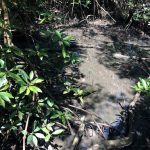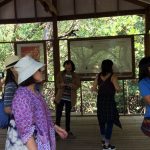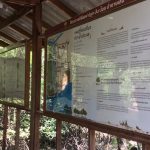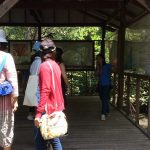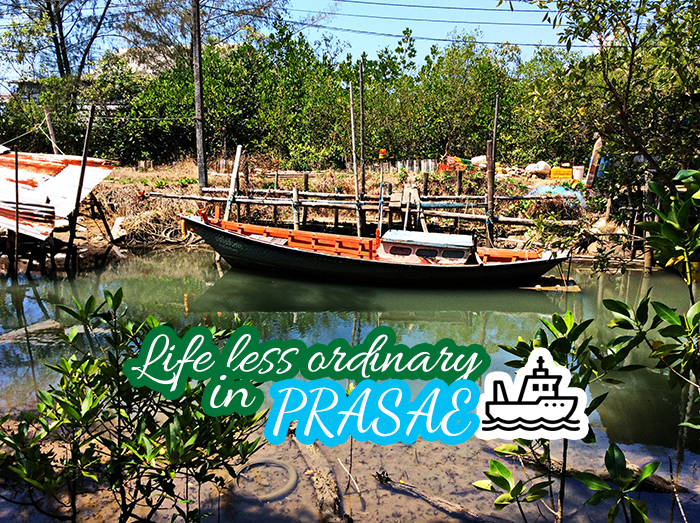
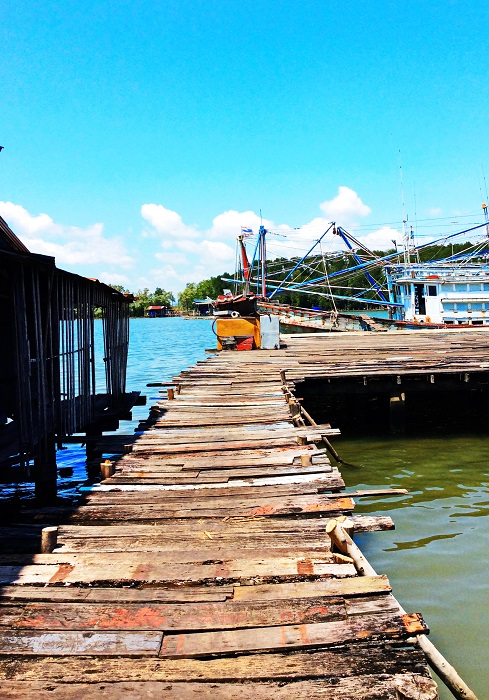
This is a series of articles on the little fishing town of Prasae in the province of Rayong and their struggles to make Prasae a site for community tourism. Prasae is located at a comfortable 2 h 39 min drive from Bangkok and about 195.4 km distance by road through Route 7 from Bangkok city. It is a coastal town which supports the lives of fishermen who eke a living from fishing and harvesting marine produce from the mangroves which support aqua-culture activities as well as an effort to replant more mangrove trees in a forestation campaign.
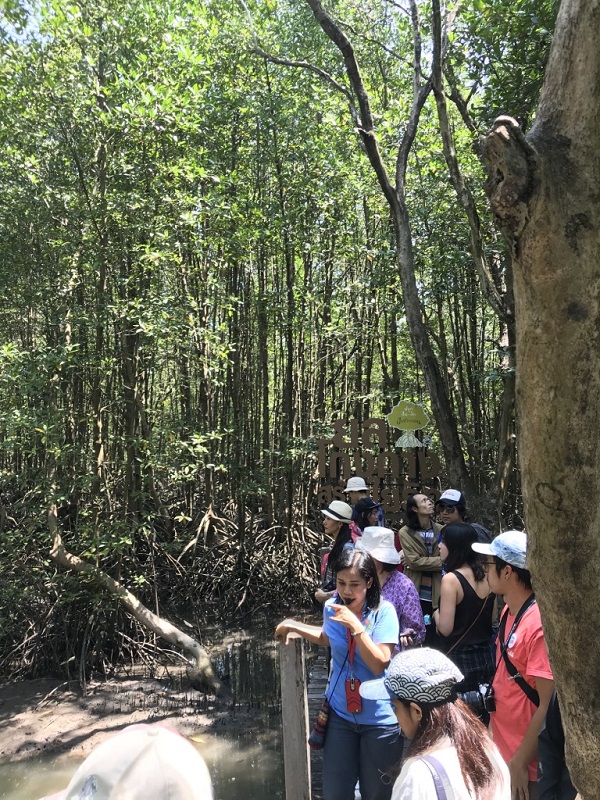
This article is just to highlight some of the marvelous activities and attractions of community tourism in this town which will be followed by more in-depth look at the activities in a series of articles on the hopes of the community leaders, about community tourism in Prasae and the eco-activities in the area.
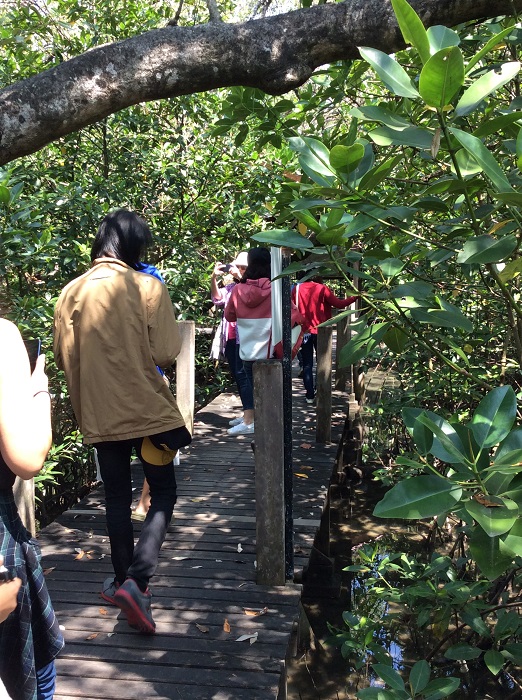
Among some of the activities we had the privilege to share in a trip organized by LocalAlike were an exploration walk of the mangrove forests, a look at how fishermen harvest small prawns to make a paste and the making of a local snack, an exploration of the fishing village where we had a home-stay experience, visit to a Shrine, a hand in harvesting shell fish, a boat ride through the mangrove areas and a session of how Indian Marsh tea is made.
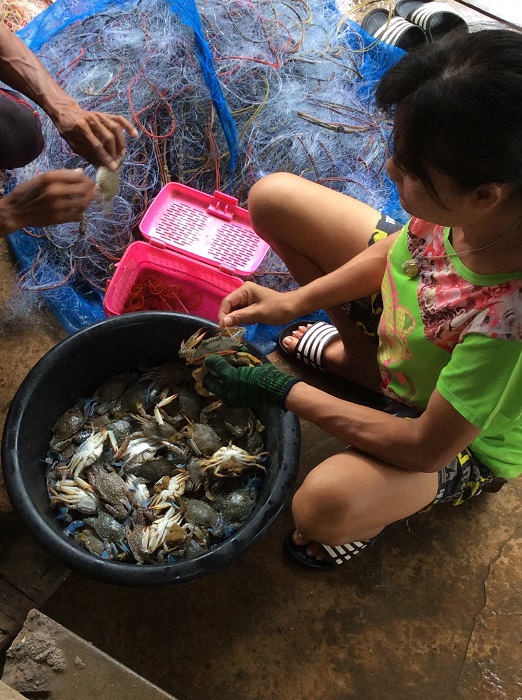
Through these articles, I hope to enlighten readers on what you can see if you visit Prasae and learn a little about the fishing life of the Thai people who live along the coastal areas of the country. Each little coastal town is different as they produce different items but this one is about Prasae and what life less ordinary in Prasae is for the people who live here.
Our welcome to the community was nothing short of typical Thai hospitality with a short briefing by the community guides and a generous offering of cold Roselle, Chrysanthemum tea and various local delights made from glutinous rice, coconut and cane sugars.
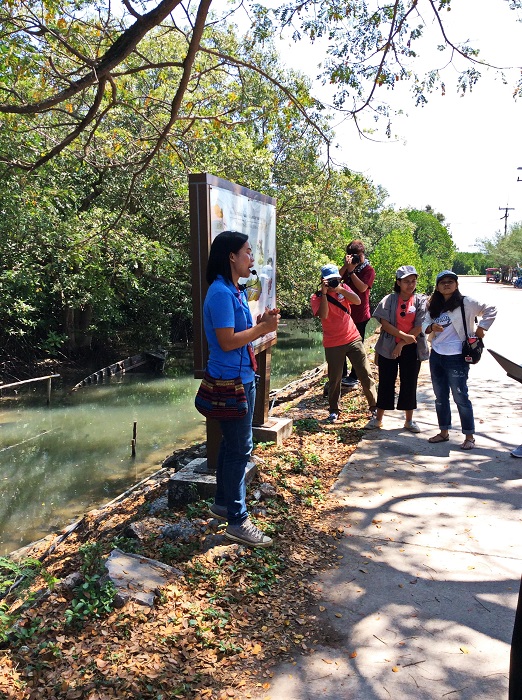
Kicking off this series is about the importance of the mangrove ecological system. When you visit this place in Prasae, you would be given a 30 minute tour through the mangrove swamps. There are not many mangrove areas left in the coastal areas of Thailand due to progress and development. It is important to note that the mangroves are a source of rich marine life that extends beyond the mangroves. Conservation efforts and education of their importance is underway by the various organizations but it is insufficient and not fast enough to highlight the plight of these important areas.
The mangroves require an abundance of the mangrove trees in order to sustain enough oxygen and marine life such as crabs, shrimps, oysters, fish and plankton. Without these mangrove trees, there is a drop in marine life and the ecological system becomes imbalanced. A deterioration of the mangroves mean that it is harder for the fishermen to make a living as well as a dwindling of the marine creatures along the coast and into the deeper seas.
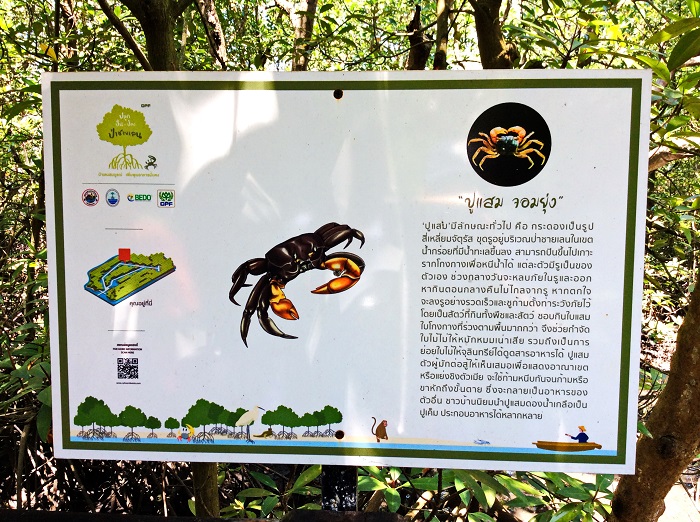
The mangroves are also a source for a particular crab called the “Poo Sam Meh” which is a small mud crab sourced from among the mangrove forest during the low tide. This particular crab is collected, pickled in brine and most commonly seen in the som tum (young papaya salad) dish. It provides a unique flavor to the dish and an essential ingredient for other Thai dishes as well.
In the educational walk through the mangroves, you will be able to see how the mangrove trees propagate through seed pods which hang from the trees. Some of the plants along the mangrove are also edible and a source for herbal teas such as the Indian Marsh which produces a tea for diabetic, healthy arteries and high blood pressure. These mangrove trees have long and numerous roots which extend deep into the soil to take in water and produce oxygen. There are still vast areas of young mangroves growing now due to the conservation efforts. Even fish like the sea bass or sometimes called Baramundi is caught along these swampy areas as well as mud crabs and sizable shrimps.
The waters in the mangrove are pristine and clear, and in your walk you can also hear the clicking of shrimps and crabs in the water. You can catch the glimpse of a crab or two as it makes its way along in the waters among the roots or small fish that make the swamp its habitat. Small rest areas in the mangrove walk provide information boards on the types of marine life available in the area and the types of trees that exist here. The Prasae community provides well informed guides who can explain to you about these mangroves and its importance to the town and the ecological system. There are two mangrove walks available, a short 30 minute exploration walk and a long 3km walk. In the late mornings there are no mosquitoes but towards evening it would be advisable to bring along some mosquito repellent to apply before you go in.
Overall, this is a very enlightening experience and definitely one should not miss discovering what it is like to be amidst the mangroves and discovering the importance and the marine life that exist in this ecology. It is also fun and a great way to discover more on the simple life of the Thai people that are down-to-earth and to be immersed in their life, traditions and culture.
[googlemaps https://www.google.com/maps/embed?pb=!1m18!1m12!1m3!1d7895.285447226017!2d101.70268491328027!3d12.712346790158529!2m3!1f0!2f0!3f0!3m2!1i1024!2i768!4f13.1!3m3!1m2!1s0x31030d4c89af53bf%3A0x5043d2b3faa74545!2z4LiB4Li44LmK4LiB4LiB4Li04LmK4LiB4LmC4Liu4Lih4Liq4LmA4LiV4Lii4LmMIOC4m-C4suC4geC4meC5ieC4s-C4m-C4o-C4sOC5geC4quC4o-C5jA!5e1!3m2!1sen!2sth!4v1521474226948&w=600&h=450]

